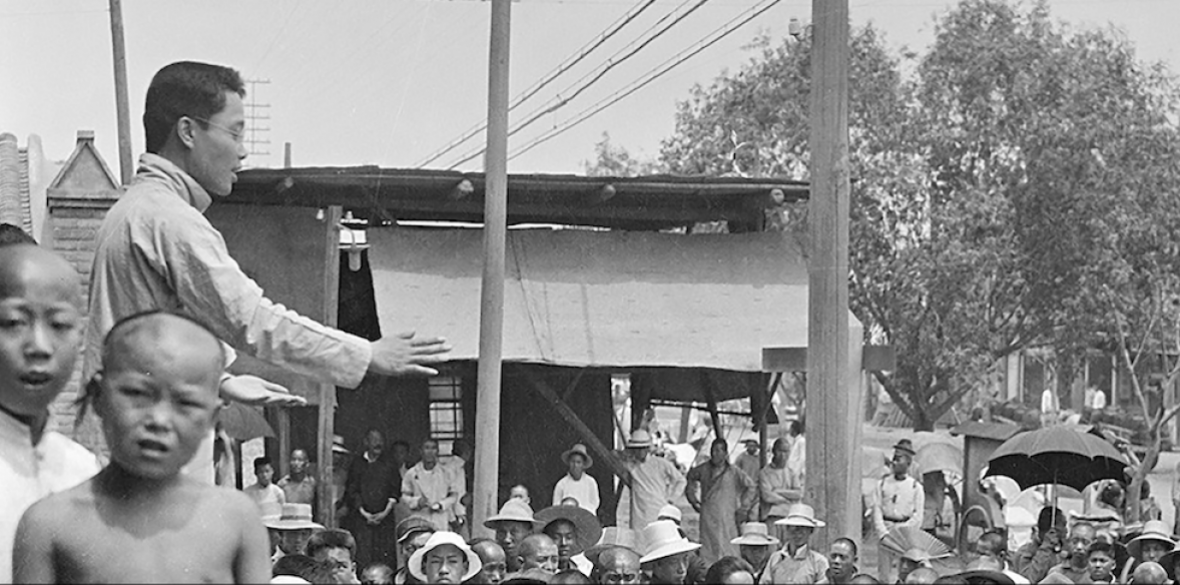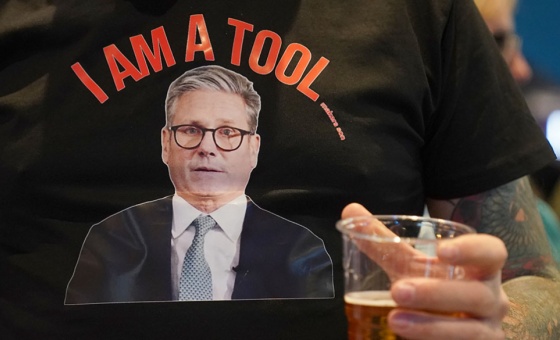This is the last article you can read this month
You can read more article this month
You can read more articles this month
Sorry your limit is up for this month
Reset on:
Please help support the Morning Star by subscribing here
WIDTH of imagination is necessary to grasp the fullness of the dream of human rights. The idea emerges slowly, driven by the hunger of the vast majority of the world’s people.
Revolutions in the early years of the 20th century (Mexico, 1911; Persian empire, 1911; Ireland, 1916; tsarist empire, 1917) brought the old ideas of equality to life, making it perfectly possible that older social rigidities and economic destitution could be swept away. Crush the crowns underfoot, chanted the republicans, while others, the trade unions and the socialists, wanted to set aside the capitalists and establish an egalitarian social order.
It was generally understood — as far back as during the French Revolution (1789) and the Haitian Revolution (1804) — that the wretchedness of hierarchy must be overthrown. The problem before dreamers of various sorts was how to get rid of monarchs and factory-owners and yet build a world that was not going to slip back into chaos and poverty. That’s where Karl Marx came in.
He provided a theory in the mid-19th century that suggested that the great advances of production could be socialised, and so all the hope of humankind could find themselves being realised in the world and not left to our dreams. A socialist society would ensure that the rights of human beings would not remain legal abstractions, but would allow humans to transcend the obstinate facts of poverty, hunger, illiteracy, houselessness, and indignity.
Since the United Nations was established in 1945, the idea of “human rights” has been in dispute. The Western states — led by the United States — insisted that the concept of “human rights” must not include the right to work or the right to food or indeed the right to education.
Such “social” rights were not to be considered as part of the entitlements of humanity, since these had to be earned by the labour of workers and not through a better division of the social surplus.
Within the UN, the USSR argued that these social rights must form part of the bedrock of the concept of human rights, which is what they drafted as a core part of the International Declaration of Human Rights (1948). The Western states insisted that “human rights” must only include political rights — such as formal elections and rights to freedom of association — but not social rights, while the Soviets refused to allow political rights without social rights.
For a generation, the UN remain paralysed to adjudicate between these two visions, allowing the Declaration to be treated more as an abstract set of principles rather than a treaty obligation.
With the fall of the USSR, the Western states had no challenge to their insistence that “human rights” be understood only as political rights, with the social rights relegated to abstractions. Today, when one says the phrase “human rights”, an important phrase nonetheless, it refers to the right to certain political rights, and even these claims to political rights are largely deployed to criticise countries that do not subordinate themselves to the Western agendas (there is little concern, for instance, in the near collapse of voting rights protections in the United States, the kinds of protections that should alert the human rights community but rarely do).
Due to the weaponization of the concept of “human rights” to undermine countries that refuse to be subordinated to the Western states, the concept itself has begun to lose its legitimacy around the world.
If one were to ask about the greatest human rights achievement that has not been celebrated as much as it should in the West, the answer should be the abolition of extreme poverty in China. The Chinese Revolution, from 1949, has slowly lifted 800 million people from poverty, with the last 100 million liberated from the grotesqueness of poverty over the past decade.
While many countries in the world now see their people slip into poverty due to the convulsions of capitalism, the Covid-19 pandemic, and the war in Ukraine, the people in China have experienced something quite remarkable. During this period, while China lifted 100 million people out of poverty, India saw a larger number slip into absolute poverty (two-thirds of those who entered poverty during these past three years live in India).
If the concept of “human rights” were to be understood in its most generous way, then it would include the removal of millions of people from poverty.
But the term remains understood in its Cold War meaning, in the Western states only understood to refer to political rights (and then only to be used in a partial manner to attack countries that do not subordinate themselves to the West). Human rights is a tremendous dream, a dream of ordinary people to have control over their lives, both in political and socio-economic terms.
What does it mean for a person in abject poverty to be told that they have the right to vote, when that right to vote will not translate into their transcendence from the indignity of poverty?
Vijay Prashad’s most recent book (with Noam Chomsky) is The Withdrawal. He is the Chief Correspondent for Globetrotter.











